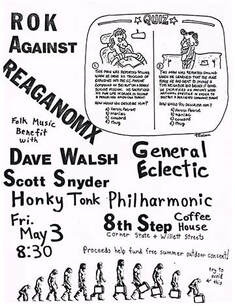 Living in New York State was a rough adjustment for all of us. My husband, Paul had a tough time finding work, and I was still a stay-at-home parent for our then 3-year old son and 7-year old daughter. In the past, I always found work here and there to help out, music lessons, childcare, crafting piece work, whatever I could find, but it was harder here because we didn’t know anyone yet except my family. I was still nursing my son and got lots of dirty looks if I did it in public. Even in my parents’ house. My dad actually told me I should go into the bathroom, to which I replied that I thought he should eat his dinner in the bathroom. My kids had been raised in an alternative lifestyle, and I wasn’t meeting like-minded people. I was beginning to worry that we had made the wrong decision. We were also struggling with meeting musicians. We had always arrived in a new town and gone to the local clubs, making contacts in the music scene. That usually led to shared gigs, to help us settle in, and lots of new friends who invited us to parties and jams. Albany was different. Everyone was very guarded and exclusive. We finally went to Rok Against Reaganomics concert in Washington Park and met the organizers, informing them about our anti-Reaganomics song “No Free Lunch.” They fit us into the schedule, and we finally met other musicians and lots of new friends. While still in East Greenbush, I signed the kids up for free swimming lessons that summer at the East Greenbush town park. I thought I could meet other moms there. I sat there week after week being ignored by the suburban mothers until one day a single woman came up to me and asked if the “hippie van” was mine. She had noticed the curtains in the windows. I replied that it was, and we took a smoking break in the van while the kids were in their lessons. Linda became a good friend and helped me acclimate to this new seemingly hostile environment. We stayed in my parents’ basement in East Greenbush, NY for a few months then finally found our own apartment in the south end of Albany. It was a three-bedroom apartment on Green Street near the projects and bordering the ghetto. We were told that there were no pets allowed but, after looking for months for a place we could afford and being sick of living with my parents, we weren't going to turn this apartment down. But, we also couldn't leave our cat out of our lives. She had traveled 3000 miles cross-country with us after all, so we decided to try to sneak her in. It worked for a while, but we were finally found out and given notice unless we got rid of her. We didn't know very many people yet but had a young lead guitar player who offered to keep her until we could take her back. Stupidly, we trusted him. He kept assuring us that she was doing well. Then, many months later, we found out that he had given her to an old woman in his neighboirhood who had fallen in love with her. This broke Jessie's heart, and we never really forgave him. We tried to get her back, but the woman had moved away to parts unknown. I soon went looking at the neighborhood school. Upon visiting, I was told that I had nothing to worry about as they were going to search the Elementary School students for weapons upon entering each morning. Yikes! This was not the school I was looking for. I finally met someone who told me about The Albany Free School, which was also in the neighborhood, so I went to visit there. I had experience with other alternative schools on the west coast and was very open to the idea of sending my children to this one. It seemed like a good fit, and I started volunteering there in the fall as my daughter started school. I ended up teaching there for 12 years in various roles. In addition to our grown-up struggles, our kids also needed to learn how to navigate this new place. The day after we moved in, the neighborhood kids came running up the stairs to tell me that my son was peeing on the sidewalk. He was used to peeing in our backyard, which we didn’t have now, and had to learn to come inside. He had a lot of accidents for the next month or so. The first week we were in our apartment, Jessie’s bike was stolen. A boy had asked if he could ride her bike then never came back. Ugh! We reported it and were visited by the neighborhood cop who made sure to tell us where all the drug dealers were so we could avoid them. He also told us not to bother reporting these minor incidents. We had never really lived in a city before and were learning a lot. Paul thanked him and, after he left, Paul went out for a walk to the areas we had been warned about. We were getting to know the area and the people, making contacts and figuring out how to survive and hopefully to thrive. Once I found The Free School, I found the local food co-op and more. Although, Albany was still a bit behind the west coast in alternatives, such as home birthing and natural healing, I had finally found my community of like-minded people, and it only grew from there. We joined the Rok Against Reaganomics committee and started putting on shows at the local clubs and the big annual event in the park. We were welcomed by local musicians and had a social life that included our children who often came to shows. Our first band was “Cosmo Rock” and was like another family. Our drummer and bass player both had families of their own with kids our kids’ ages. It was a lot of fun. The next band was “General Eclectic,” a name that stuck with us for many years to come. This band had many different incarnations with players coming and going. Sometimes it was just the two of us, other times we had up to six members. Jessie loved the social aspect of the shows and rehearsals. Justin was still quite young and often crawled under a table with a pillow and blanket to sleep through it all. He was always very smart about finding an out-of-the-way spot where no one would trip over or step on him. Although Jessie was struggling with making friends, she came to us and declared that she wasn’t moving again. She wanted to stay in New York and would stay with her grandparents if necessary. She was tired of having to start over every year or so and yearned to plant roots. Although it was not an easy decision for two adventure-seeking tumbleweeds, Paul and I agreed to stay … and we did. We moved out to the country at one point but stayed in the general area. It's been hard sometimes to stay put, but in the long run, I'm glad. I like it here.
0 Comments
Continuing with my recollections of my daughter’s early childhood …
During our time in California, she was exposed to tons of music. There were always street musicians downtown, and we had music playing at home constantly. Her favorite song at that time was “Jesse” by Janis Ian. Every time the lyric “Hey, Jesse” came on, which was the start of each verse, she would look up and smile or coo. She also went to numerous concerts both in utero and as a baby. On New Year's Eve in 1975, when she was 4 months old, we went to the Keystone in Berkeley for a concert with The Jerry Garcia Band. Because it was a small indoor venue, I decided it was too loud for her little ears, so we went to a back room where the volume was much less but I could still peek through the windowed door and see the show. Nicky Hopkins, who had played with The Rolling Stones, Jeff Beck, Quicksilver Messenger Service and too many more to name, was playing keyboards at this show. At intermission, he came out for a breather to this back room and hung out with us, eventually asking if he could hold my baby. Of course, I said yes, and was thrilled as she cooed and smiled at this awesome musician. When Jessie Lea was 8 months old, her dad (Paul) and I decided that we wanted to move to Oregon and try to get work in the orchards. In order to make that happen, Paul quit his job and hitchhiked north. Meanwhile, I moved out of our apartment, putting all of our possessions in storage, and lived in the park with our friend, Amber. She had a VW bus that we slept in and lived out of, but we spent most of our time outdoors. We had agreed that he would make phone calls to the pay phone outside of a nearby café, The Broken Egg Omelet House, every few days to let me know any progress he’d made and where to go when it was time for us to join him. This was well before the age of cellphones, so we set a day and time for the first call and planned the next each time we talked. I settled into an easy routine with Amber and Jessie, thoroughly enjoying our gypsy lifestyle. Amber had planned a visit to Connecticut to visit family, and Jessie and I were going to travel with her, coming west again in a few weeks to meet up with Paul, hopefully giving him enough time to settle before we reunited. To see all of our grand plans to fruition, these scheduled calls and the timing in general were crucial. When Paul missed a phone call a few days before we were due to leave, I started to panic. What should we do? The calls were scheduled one at a time. We hadn’t thought about what to do if we missed one. I stayed close to the pay phone all that day and the next day. I wasn’t willing to live in the park with my baby alone and without any vehicle to sleep in but was worried about leaving on a cross-country trip without checking in with Paul first. How would I find him again when we returned? We were hanging out in the park, the day before we were supposed to leave, when a waitress came running up asking if I was Debbie Cavanaugh. Thankfully, Paul was calling. The pay phone was out of order, so he had finally called the café. He let me know that he’d been unable to find work and was on his way back to Santa Cruz. We waited for him and all left two days later in Amber’s VW bus for the long ride back home to Connecticut. We decided to take a southern route since all three of us had arrived in California via the northern routes and wanted to see new sights. This was also before the days of seatbelts and car seats, so we set up a tiny play area on the floor in the back for Jessie. She actually took her first steps while we were driving down the highway. She could toddle back and forth in the moving vehicle but not on solid land, and I could see how confusing that was for her. I learned a lot during that trip about how to travel effectively with a young child. We made that whirlwind trip in three days, taking turns driving and sleeping, driving all night long, living on coffee. I drew the short straw and ended up with the middle of the night shift, so for three days, I drove at night and catnapped during the day between reading and playing with our young daughter. We only had one dangerous situation to handle during that trip but Jessie, who had been safe in the bus with Amber at the time, never had any notion of danger. We arrived in Connecticut only to find out that my parents were on vacation in New Hampshire. Ugh! It didn’t take me very long to get an address for the house they’d rented, and off we went to find them. When we got to the vacation house, no one was home. “Oh, no! What do we do now?” I suggested that we park the bus out of sight, behind the bushes and break into the house, surprising them when they came home. Looking back on it now, like so many other things, I realize how stupid that was. It’s amazing that my parents didn’t faint or have a heart attack or something. But, they didn’t. My mom screamed, then cried. My dad shook his head in disbelief then laughed. We had a wonderful visit and went back to our hometown with them. Paul and I got a gig at a local bar, had a great turnout and, in our youthful enthusiasm, decided that this must have been our “big break.” We decided to stay and left poor Amber to make the long drive back alone. My family were thrilled and helped us set up housekeeping, providing us with furniture and household goods, all the things that were locked up in a storage locker back in Santa Cruz, which we paid on for years to come. So far, in her first nine months, my daughter had hung out with many different people, lived in an apartment, in a city park and in a VW bus. She had learned to walk while crossing the country in a moving vehicle and was now settling close to her grandparents, who she barely knew, and moved into a very different environment. Luckily, she was raised to be flexible and was still quite young. At not yet a year old, she had already had more experiences than many adults have in a lifetime. Although I know she doesn’t remember these things, they helped mold who she would become. Stay tuned for the next installment, “A Year in Connecticut.” 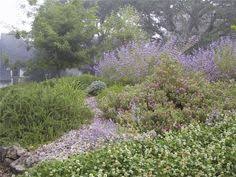 I was talking to my daughter this morning, bemoaning the fact that I’ve been struggling to come up with blog topics. She mentioned that one of the things that enriched her life the most and has made one of the most long-lasting effects was her exposure to alternative people and lifestyles. For some reason, that had never occurred to me until today, but it started me thinking about her childhood. She was born on the west coast after her dad and I had hitchhiked across the country. We weren’t really ready to settle down, as we had just started on our journey together, but we recognized the need to settle temporarily. We stayed in Santa Cruz, California for about a year and a half, long enough to acclimate to our new roles as parents. While there, we met all kinds of unique characters. There was a hippy couple with a baby girl very close in age to our daughter. Jewel and I became new mom companions. We were both young and newly settled there. She was 18 years old with long red hair. Her husband, Rain, was an older guy with long white hair, and their little girl was named Honey Tree. We thought of many alternative names for our daughter but decided that in 1975, we still didn’t know where we would go from there and wanted her to have a more traditional name. We all had long hair then. The women mostly wore long peasant skirts or patched jeans. Somewhere, I might still have a pair of old jeans from back then. Sometimes Jewel and I would meet in San Lorenzo Park with the two girls and just hang out watching the world go by. There was usually a lot to see because everybody used the park. The only homeless people that I had any real personal contact with were men. I don’t remember any homeless women, although I have a very vague memory of seeing a woman once out in the distance. A lot of people went missing in that area, so I assumed that the women stayed out of sight for their own safety. One of the regulars was a man who had at one time been a nuclear physicist and lost his mind. He had a steady, dependable income making a lot of money for that time. He had a loving family and was part of an active community. He woke up one day and realized what his job was actually doing in the world and just walked away from the whole scene. He now lived off the land, eating foods that were growing wild all around. He showed me rosemary growing wild in the park and in empty lots in town that I could use in my cooking. He was a very sad and brilliant man, eager to share his knowledge and his stories to have some personal connection, but he was tortured about his old life and couldn’t see past that sometimes. 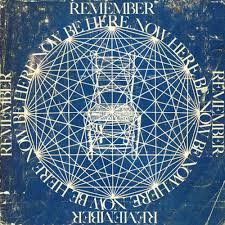 Then, there was “Moses”. I most often saw him in front of the Albertson’s grocery store. He was a very large man who would stand at the big windowed store front with his arms spread out above him, very loudly channeling the “Word of the Lord.” He’d go on for hours at a time, and no one could speak with him during those times. Sometimes little respectful crowds would gather. He was really interesting and cool to listen to. It always made the shopping experience unique to what I’d grown up with. I saw it as street art. When he was in the park, only a very few of us could actually talk with him at all. He was very peaceful and gentle-hearted but also withdrawn. He said it was exhausting having the word of God come through him. He told me that he lost control of his body at those times and was outside of himself not feeling any exhaustion in his arms until afterwards. He also usually lost his voice for a day or two after proselytizing. I think he spoke to me because I had a baby and was obviously safe. He mostly talked about spiritual things and first told me about the book Be Here Now by Ram Dass, formerly known as Richard Alpert (one of the pioneers of psychedelia). Downtown there was a pedestrian mall where you could find street musicians and artists. I found my favorite Bread Book in a free box in front of a funky bookstore there. I saw Arlo Guthrie playing on a street corner and turned another corner to be confronted by a street performer dressed in full combat gear. There was a lovely café that had a jazz band outdoors right in the front so that they were accessible to everyone walking by. I even sang “Summertime” with that band one time. And, I randomly ran into “Michael,” a homeless man we had picked up hitchhiking before our big adventure a year earlier, while we were still living in Connecticut. It was easy to meet people because everyone just hung out in these public places, sitting in little groups on the sidewalks, on park benches or strolling along. I learned things from all of the people I met there. Having grown up very shattered and sheltered, I was just starting to learn about life. There were activists, commune dwellers, musicians, artists, healers... In that short 18 or so months, I learned about wild foods, herbal healing, “health foods” and “whole grains”, motherhood, spiritual enlightenment, alternative politics, sexuality and so much more. My mind was not only expanding, it was exploding. I’m sure that it also had a profound effect on a newborn just discovering the world. In our lives were people of all shapes and sizes, all walks of life, all orientations, and that was before she turned one year. I wonder what she still holds with her from that specific time. There are other eventful and colorful times, but this was her earliest. She obviously doesn’t remember details, but the overall vibe of that time and place has helped mold her as it has me. I still grow rosemary because it doesn’t grow wild around here, and I’ve been used to having fresh rosemary since 1975. I practice spirituality rather than an organized religion and still own my copy of Be Here Now. I am comfortable with all people regardless of how they choose to live, and I have an amazing sense of danger when needed. I think I’ll think about each “era” individually. They are so rich! They deserve separate posts, so I guess this will be a series of posts as I wade through my past travels and think about the life my daughter was surrounded by. So, stay tuned. 😉 Thanks, Jes. I had just turned 22 when my first child was born. I was just a baby, and my husband was even younger in years though he was older and, in some ways, wiser because of his many years on the road as a runaway. We had decided early on that, because of the cost of childcare at the time and other factors, one of us should be a stay-at-home parent, and he quickly admitted that he would be no good at it. I, on the other hand, thought I would be very good at it and jumped at the chance to be a full-time parent. My own parents parented with a mix of abuse and total involvement.
It was amazing that even though I grew up in the 1950s and 60s, both my mom and my dad raised my brother and me equally, playing with us, teaching us and including us in most things. We played board games and card games which taught us strategy and a healthy dose of competition. They played outdoor games with us that they remembered from their own childhoods, all of us laughing often stumbling or making mistakes but learning to recover and learning survival skills along the way. We learned history and social studies by going on family vacations to places like Sturbridge Village and the Boston area, including Plymouth Rock and Pennsylvania Dutch Country, including Gettysburg in the trip. We gardened, did science experiments, did minor medical things like applying butterflies to deep cuts. We went on nature walks, and we always had a dog. We were included in dinner table discussions even when there was company. My parents’ friends were writers, politicians, lawyers, and other businessmen. Only a few of the women worked, but they were all educated, and they very smart and savvy. Most of those who did work were nurses. The conversations were timely and exciting. My comments in these larger groups, although not always agreed with, were always welcome. And … there was always music. Every one of our family of friends loved and followed music, mostly Big Band and Jazz. Some of them were living room musicians themselves, played quite well and loved it, but decided to go down a different path. I often say that I feel as though I learned more at home than I ever learned in school. Granted, I was not a good student and hated being there at all, but the richness of my home experience far outweighs any richness I felt at school. It makes me feel sad when I think about that. I wish I had loved school. School is a child’s opportunity to go out on their own and discover a world away from their parents. That is such a valuable thing. We are born helpless and in need of constant care in order to survive. Over time we start to do more and more for ourselves until finally, we’re ready. It’s time to find ourselves as individuals. As parents, we’ve been so wrapped up in caring for our child, it’s very hard to let go and even harder to know when it’s the right time. But there isn’t really a “right time.” Letting go is a very gradual process. The first time I left my baby in a room alone, I had to let go. When I let them explore outside of my reaches, I was letting go. Sending them off to school or daycare was just part of the long process of sending them out to live their lives. That said, not all children are suited for school and not all parents are ready to let them go, where they will stumble around on their own and even trip and fall. I was a child not suited to school and my mother was not willing to let me live my own life, though she did send me to school. Because my mother tried to control my every thought and deed, I was very shy and afraid when I went out in public. My school experience was fraught with peril. I didn’t participate in classroom discussions, had very few, if any, friends and was a target for bullies. However, my test scores and writing assignments, when I did them, were always stellar. I was very smart and very bored in school. I was already reading books far ahead of my grade level and understood things way beyond what was expected of me by my teachers. This was because of my upbringing which was a curse and a blessing. Even now, I get bored easily and lose interest in mundane things very quickly. It never ceases to amaze me that I ended up being an educator. If my family were not so dysfunctional and abusive, I would have thrived in a homeschooling situation. I think I would have thrived in a performing arts school, even a boarding school may have been an improvement. As it was, I struggled throughout my school career, working with tutors, retaking classes and mostly trying to make myself invisible. My family thought that sending me to a college prep school would be much better than public school, where I had finally made a couple of friends, but that was the final disaster. It’s a miracle that I made it through those four years alive. Not everyone did. My savior was music. There were no music or art classes in my high school until my senior year. However, I had been taking private piano lessons for quite a few years and started classical voice training. I went home from school every day and sat at the piano playing a little to unwind, launching into my required hour of practice then just playing for the rest of the afternoon. It soothed away all of the turmoil inside of me and washed away all of the abuses of the day. Mom used to say that she could tell what kind of a day I’d had by the way I played when I got home. There was also a very cool Jesuit priest teaching in this Catholic high school. I wish I could remember his name, but I retained very little from those days. He taught yoga after school and started an afterschool guitar class/jam. My dad let me use his old no name steel string guitar that he had bought for $5.00 from the Red Cross when he was in the navy. The strings were like steel cables and the action was very high. I could barely press the strings down at all, but this was the only music in the school, so I was in. I worked very hard learning to play a few chords, my fingers bleeding sometimes from the old rusted strings, until finally my dad decided to buy me a classical guitar. In my senior year, the school hired a music teacher, and I excelled, tutoring some of the less able kids and making friends in this school for the first time during my four-year tenure. School is a necessity and should be a time of discovery, a time to discover new ideas and discover ourselves. I am a firm believer in children going to school and, although I have homeschooled my children from time to time, they have spent most of their time in schools. However, it takes the team work of students, encouraging parents who listen to their children and address any problems, helping them figure out how to solve issues but not doing it for them, and caring teachers who are not restrained by unreasonable rules and expectations. There are so many wonderful teachers in our schools trying to navigate a changing world and do their best for their students. I think we should let them do their jobs. But I don’t think that school should be the only place where we learn such valuable things as social studies, current events, science, health, art and music? I grew up during the Cold War and the Viet Nam war. We understood the tenuousness of peace and the realities of life. I don’t remember growing up terrified that the world would end because world events were talked about in school and at home. When disasters happened, we were aware of them. When John F. Kennedy was assassinated, we were told what happened and were sent home from school early. We talked about it as a family, and we talked about it in school. When the Cuba Crisis was going on, we all shared the apprehension and survived. My daughter vividly remembers when the Challenger exploded. It was a traumatic event for many school kids watching the first teacher go into space. They got through it. It seems as though now, we try so hard to protect our children from the things that happen around them. We keep them indoors for fear of abduction, we keep secrets about the state of the world. We are failing to teach them the survival skills they will need as adults. I’m not suggesting that we don’t protect our children. Of course, we need to do that. I’m suggesting that we not overprotect them. They will only know how to use their instincts about safety if they have practice. I can tell you from my own experience that I have drawn on the skills I learned at home, more times than I can count, to ensure my own survival. My daughter once said to me, “How can I make new friends if I’m not allowed to talk to strangers?” I would take it a step further. How will you be able to determine if a potential new friend is a threat if you don’t have the experience of listening to your instincts? |
Archives
January 2024
Categories
All
|
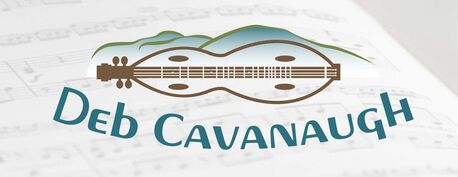
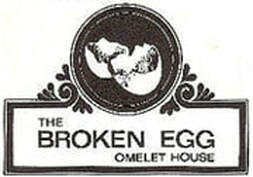
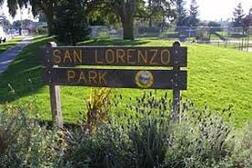
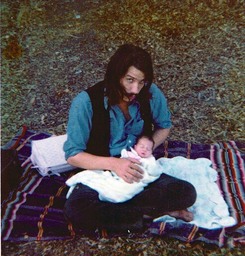
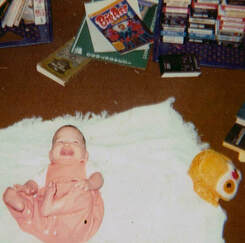
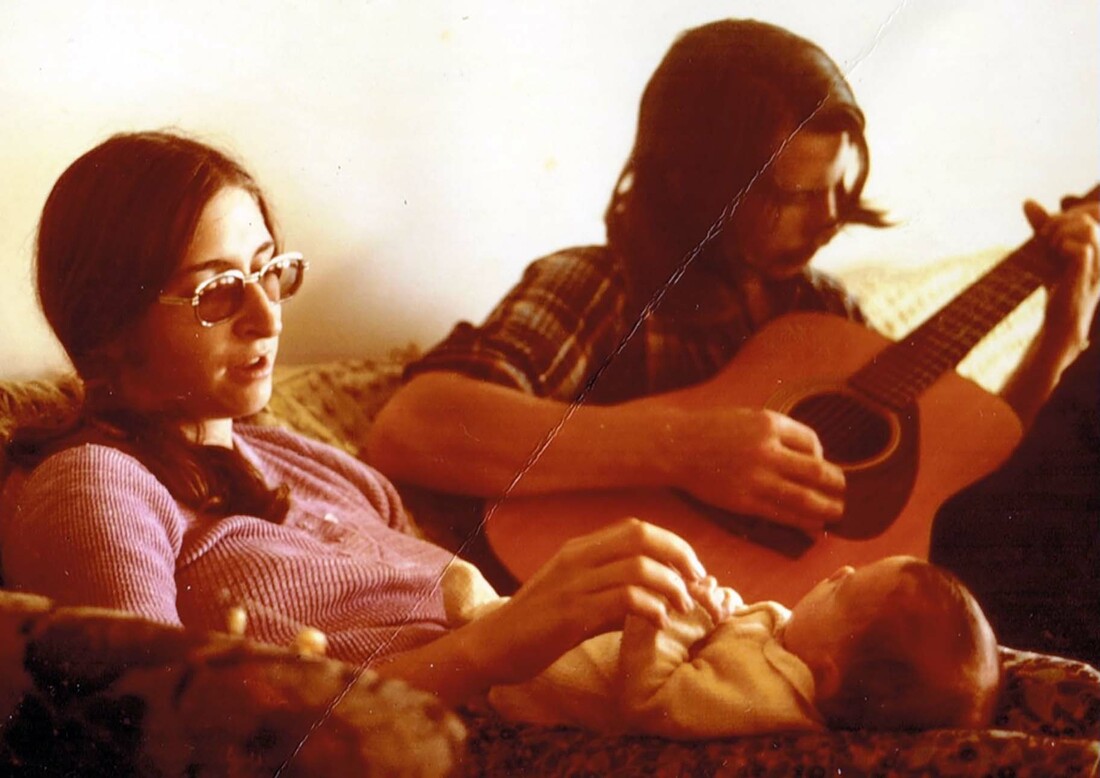
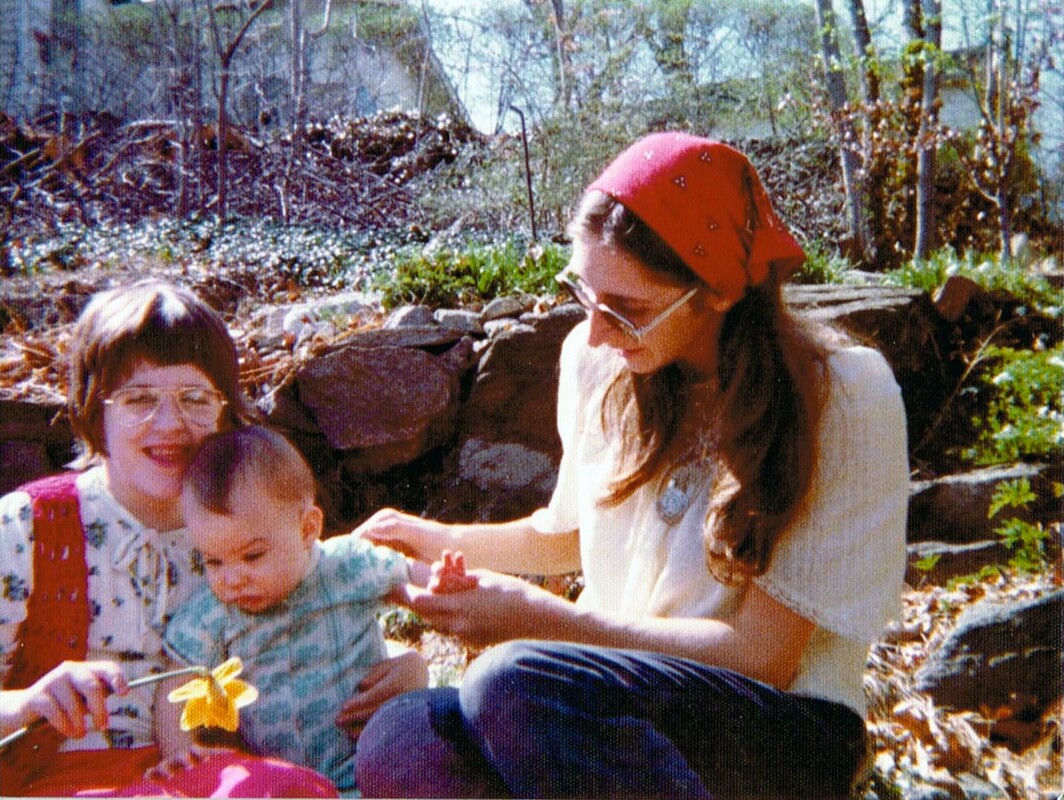
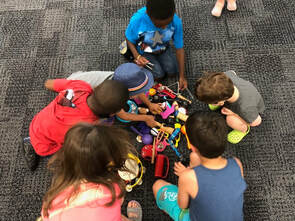
 RSS Feed
RSS Feed